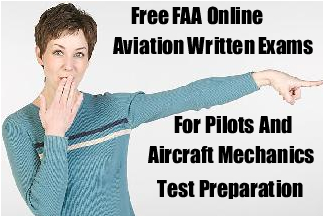|
|||||||||||
|
|
|
|||
|
By Mike Mitchell |
||||
 |
|
|||
|
|
||||
|
The president of
one of Europe‘s largest national authorities stated that the only thing
authorities are prepared to do is remove the name of the reporter from
the report. AEI highlighted the fact that within aviation maintenance,
engineers are required to sign with name and personal number for any
activity they perform.
Therefore it is
extremely easy for any airline or maintenance organization to uncover
the whistleblower. In addition several other national authorities in
Unfortunately this
attitude is widespread despite the European Commission introducing
several directives designed to promote the collection of safety related
data while protecting the whistleblower. AEI therefore urges all
European regulators to revisit these directives and remind themselves of
their responsibilities.
EC Directives 216/2008 and 2003/42 not only require the protecting of the whistleblower but actually make the reporting of unsafe activities mandatory as it is clearly in the public interest to protect them from such activities. |
||||
|
Therefore both
lawmakers and regulators must work together to ensure the aviation
community is free to highlight malpractice without having to fear
personal consequences. When asked what kind of protection whistleblower
can expect from national aviation authorities in
However to ensure
that safety remains paramount, AEI will set out a roadmap of actions on
how to safeguard aircraft maintenance in the future by prioritizing the
main areas of risk, highlighting weak regulations and those ignored by
both airlines and regulators. AEI also calls upon regulators to place
more distance between themselves and the financial aspects of keeping an
airline viable. Regulators are put in place to regulate safety on the
public’s behalf and as such must ensure safety remains paramount.
Commercially viable but unsafe airlines are not an acceptable option.
AEI will continue
to work in partnership with both regulators and industry to maintain the
highest levels of safety, “pressure on our members to “shut up and be
quiet” will no longer be tolerated”. Shooting of any messenger is short
sighted, not in the public interest and therefore doesn’t have a place
in the 21st century. The European Transport Directorate may wish to seek
improvements in the protection of reporters within some of the current
regulations but must also take its responsibility seriously by enforcing
regulations in those countries that are unwilling or unable to implement
change.
In addition AEI in accordance with current European freedom of information regulations recently requested documents from the European Aviation Safety Agency (EASA) relating to the audit and approval of foreign maintenance organizations. The low cost maintenance organizations concerned remain fully operational despite clear evidence of gross negligence and poor maintenance standards.
EASA has failed to
respond to the freedom of information requests within the prescribed 15
working days. Therefore not only are these maintenance facilities still
active but they continue to maintain European registered aircraft as
well. The lack of action from all involved regulatory authorities means
that the alleged safety violations may still be on-going which could
potentially endanger lives. AEI considers this behavior unacceptable and
urges both urgent intervention and the releasing of the requested
documents.
Unfortunately this
is not the first time EASA have refused to release documents which may
potentially highlight a lack of will to directly confront safety
violations.
The EASA mission statement is “to promote the highest common standards
of safety and environmental protection in civil aviation in |
|
|
| Other News Stories |
| ©AvStop
Online Magazine
Contact
Us
Return To News
|
|


